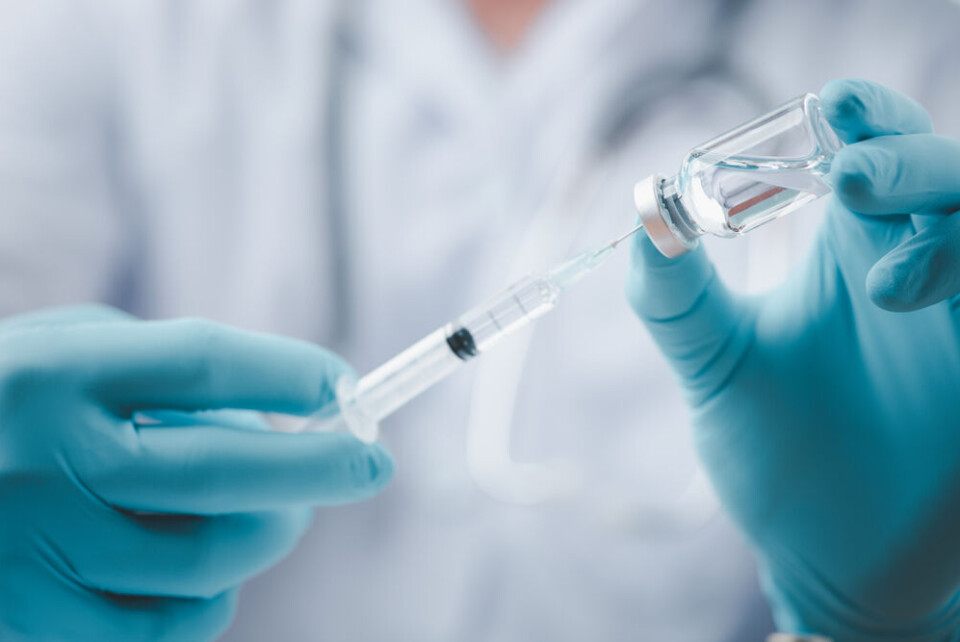-
Germany to prolong EU border checks: how travel from France is affected
Checks at land borders will take place until at least September 15, 2026
-
Floods in France: emergency measures underway amid ‘historic’ conditions
Gironde, Lot-et-Garonne and Maine-et-Loire among worst-hit with red warnings in place
-
Mardi Gras: 12 traditional carnival sweet treats to try in France
Gaufres, bugnes, merveilles and more
Hopes over French firm’s vaccine to treat lung cancer
The new vaccine saw positive results in its stage three trial, and ‘brings great hope’ to patients, a leading expert has said

A vaccine being developed by a French company could help to treat people with lung cancer and give them extra better health time, the researchers have revealed.
Scientists at the Nantes-based biotechnology firm OSE Immunotherapeutics this week presented positive results from its development and trial of the Tedopi vaccine.
🔔 Nous sommes ravis d'annoncer que les données positives de l'essai clinique de phase 3 évaluant TEDOPI, notre vaccin thérapeutique contre le cancer du poumon non à petites cellules ont été publiés dans la revue Annals of Oncology. 📢 https://t.co/GeoFLu4N6h pic.twitter.com/ujdjcBaYht
— OSE Immunotherapeutics - Biotechs & immunothérapie (@OSEImmuno) September 11, 2023
The trial, which was a ‘stage three’ trial, meaning the last stage before the vaccine could be sold on the health market, included 219 people from nine European countries and the US. Of these, 139 patients were injected with the vaccine every three weeks, six times. Then, they were injected every eight weeks for a year, and then every 12 weeks.
The vaccine is considered to be a ‘therapeutic’ vaccine, which means it helps to treat conditions rather than prevent them.
Dr Nicolas Poirier, director general of OSE Immunotherapeutics, told BFMTV: “There are two kinds of major technology when it comes to vaccination. The most well-known is prophylactic, preventative, which we use in the context of the pandemic or other types of infections. And then there’s therapeutic vaccination.”
Lung cancer is the third most common type of cancer and the leading cause of death from cancer in France.
Positive trial results
In the OSE Immunotherapeutics studies, patients who participated in the clinical trial and received the vaccine saw their illness slow down, giving them time back.
The results, published in the journal the Annals of Oncology, show that “a year after treatment, 44.1% of the patients who had received the vaccine were still alive, compared to 27.5% of those in the chemotherapy group”.
Patients who received the vaccine lived for an average of three and a half months longer, at more than 11.1 months overall; compared to just 7.5 months for patients who did not receive it. Those who were vaccinated saw their risk of death drop by 41% compared to other patients.
Dr Poirier told Le Monde that these patients do not only extend their life but that they are in better health for longer.
The vaccine also has fewer side effects than other treatments; 11% of patients had significant side effects from it, compared to 35% of those who underwent chemotherapy. In addition, the side effects experienced were typically a sign that the vaccine is working, and temporary; such as inflammation at the injection site.
In contrast, the side effects of chemotherapy can be intense and longer-lasting, including fatigue, nausea, vomiting, and hair loss.
Read more: French cancer app to help with side-effects and treatment information
“This opens the doors to, and brings great hope for, all of our patients who are living with [lung] cancer,” Professor Fabrice Barlesi, lung cancer specialist and director general of the Gustave Roussy institute, told FranceInfo.
The vaccine helps to ‘re-educate’ the body’s immune system, so it can once again recognise and fight cancer cells throughout the body, he said.
Vaccine limitations
However, the vaccine is not suitable for all types of lung cancer, or patients.
It is specifically aimed at people who have ‘non-small cell’ cancer (the kind most commonly linked to long-term tobacco use), and those whose cancer has metastasised (meaning it has spread, which happens to half of all lung cancer patients).
Professor Barlesi explained: “We need to identify a sub-group of patients who have the right biological characteristics to respond to the vaccine.” Recipients must have a certain genetic profile called HLA-A2. Around half of the general population has this.
The vaccine would also only be used for patients who have already unsuccessfully tried other typical treatments, such as chemotherapy and immunotherapy.
Around 100,000 lung cancer patients globally would theoretically be eligible for the vaccine if it were to be rolled out everywhere, said Dr Poirier.
New trial and new vaccines
A new trial, involving a cohort of over 300 people, is due to be set up in early 2024 to confirm the published results. This trial will run for three years. If the results are positive, the vaccine could be registered and marketed on the wider market by 2027.
Tedopi is not the only vaccine against cancer that researchers are working on, including in France.
Most recently, pharmaceutical giants Merck and Moderna announced positive early results for their vaccine against a type of skin cancer, while the BioNTech and Roche labs released positive studies for a possible pancreatic cancer jab.
In June this year, French company Transgene also revealed positive results for a vaccine that could stop cancer from coming back. Of the 16 patients currently treated, none saw their cancer return in the 10 months after the injection.
Yet, Tedopi is the most advanced of the current crop of anti-cancer jabs. Its technology could even apply to other types of cancer in future, researchers said.
“It’s a strong bet that we will have results from these [other] illnesses in the months and years to come,” said Professor Baresi.
Read also
How close is France to finding a vaccine to treat cancer?
French scientists make breakthrough cancer treatment discovery
Breast cancer in France: New treatment authorised for use
























